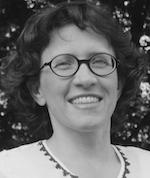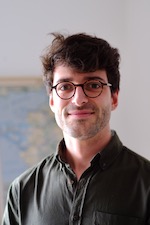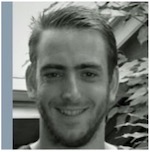Tutoriel 1 : Information theory for image and video compression: fundamental results and recent challenges
There are numerous results in information theory that shed light on the construction of current video codecs. In this tutorial, we will present these results by distinguishing between results with vanishing error probability and results for zero-error coding. For lossy compression, we will present fundamental results explaining choices made in video compression. To do so, we will differentiate between theoretical compression bounds and practical compression bounds, taking into account complexity constraints. Finally, if time permits, we will explore the challenges posed by recently emerged compression problems among video coding for machine, goal-oriented compression, or storage on DNA.
 Aline Roumy Aline Roumy is currently a senior research director at Inria within the Inria Center at the University of Rennes. Her research interests include the area of signal and image processing, information theory, and coding theory. Her research focuses particularly on image and video compression. She currently serves as a Senior Associate Editor for IEEE Transactions on Image Processing. Holding degrees from Ecole Nationale Superieure de l'Electronique et de ses Applications (ENSEA) (engineering), University of Cergy-Pontoise (Ph.D.), and University of Rennes (HDR), she also studied at the Technical University of Berlin. She has previously worked at Princeton University (postdoctoral fellow), Eurecom Institute, and Berkeley University (visiting professor).
Aline Roumy Aline Roumy is currently a senior research director at Inria within the Inria Center at the University of Rennes. Her research interests include the area of signal and image processing, information theory, and coding theory. Her research focuses particularly on image and video compression. She currently serves as a Senior Associate Editor for IEEE Transactions on Image Processing. Holding degrees from Ecole Nationale Superieure de l'Electronique et de ses Applications (ENSEA) (engineering), University of Cergy-Pontoise (Ph.D.), and University of Rennes (HDR), she also studied at the Technical University of Berlin. She has previously worked at Princeton University (postdoctoral fellow), Eurecom Institute, and Berkeley University (visiting professor).
Tutoriel 2 : Leveraging AI for better video compression: insights and overview
This tutorial explores the various applications of AI in video coding. Over the past ten years, the field has seen the rise of numerous learning-based video codecs. Early methods focused on improving established coding standards with neural enhancements, such as augmenting HEVC with a learned post-processing filter. Meanwhile, other techniques have utilised autoencoders to completely supplant traditional codecs, capitalising on the neural networks' capacity to identify intricate patterns in complex data. These methods have begun to surpass the most recent MPEG compression standards, though they come with significantly high computational demands. More recent developments include implicit representation and overfitting-based codecs, which offer a new approach to learned coding that combines neural network efficiency and low computational requirements.
 Théo Ladune is a research engineer at Orange Innovation in Rennes. He earned his Ph.D. in deep learning for video coding from the University of Rennes in 2021. Since joining Orange Innovation that same year, he has been exploring various applications of deep learning in video coding, ranging from autoencoders to implicit representations and generative AI. His current research primarily focused on developing innovative video coding methods relying on extremely lightweight neural networks.
Théo Ladune is a research engineer at Orange Innovation in Rennes. He earned his Ph.D. in deep learning for video coding from the University of Rennes in 2021. Since joining Orange Innovation that same year, he has been exploring various applications of deep learning in video coding, ranging from autoencoders to implicit representations and generative AI. His current research primarily focused on developing innovative video coding methods relying on extremely lightweight neural networks.
 Xiaoran Jiang is an associate professor in INSA Rennes and a member of the VAADER research team of the IETR laboratory, UMR-CNRS 6164. He obtained the engineering degree and his PhD at Télécom Bretagne (now IMT Atlantique) in 2010 and 2014 respectively. He carried out his thesis with Professor Claude Berrou in neural networks and computational neurosciences. From 2016 to 2021, he was a junior researcher in the SIROCCO team at INRIA Rennes. He worked with Professor Christine Guillemot on various themes around light field images and videos, including compression, depth estimation, view synthesis and rendering. His current research interests include 2D/3D image and video compression and representation, computer vision, computational photography and frugal AI.
Xiaoran Jiang is an associate professor in INSA Rennes and a member of the VAADER research team of the IETR laboratory, UMR-CNRS 6164. He obtained the engineering degree and his PhD at Télécom Bretagne (now IMT Atlantique) in 2010 and 2014 respectively. He carried out his thesis with Professor Claude Berrou in neural networks and computational neurosciences. From 2016 to 2021, he was a junior researcher in the SIROCCO team at INRIA Rennes. He worked with Professor Christine Guillemot on various themes around light field images and videos, including compression, depth estimation, view synthesis and rendering. His current research interests include 2D/3D image and video compression and representation, computer vision, computational photography and frugal AI.
Tutoriel 3 : Understanding Life Cycle Analysis (LCA)
Life Cycle Assessment (LCA) is a powerful tool for gauging the environmental impact of products and processes. This presentation explores LCA's core principles, methodologies, and real-world applications. Attendees will gain insights into how LCA informs sustainable decision-making and influences eco-design.
 Nicolas Beuve is an associate professor at INSA Rennes. After completing an engineering degree at Phelma (Grenoble INP) specialized in signal and image processing, he pursued a PhD on deepfake detection at INSA Rennes, in the VAADER team of the IETR (Institut d'Electronique et des Technologies du Numérique) laboratory. His PhD was funded by the AID (Agence Innovation Défense) and supervised by Wassim Hamidouche and Olivier Déforges. Since 2023, he is an associate professor at INSA Rennes, undergoing his research activities in the IETR laboratory, and participating to the ANR (Agence Nationale de la Recherche) project ESOS (Électronique Soutenable, Ouverte et Souveraine). His current research focuses on mathematical modeling for life cycle assessment and embedded artificial intelligence.
Nicolas Beuve is an associate professor at INSA Rennes. After completing an engineering degree at Phelma (Grenoble INP) specialized in signal and image processing, he pursued a PhD on deepfake detection at INSA Rennes, in the VAADER team of the IETR (Institut d'Electronique et des Technologies du Numérique) laboratory. His PhD was funded by the AID (Agence Innovation Défense) and supervised by Wassim Hamidouche and Olivier Déforges. Since 2023, he is an associate professor at INSA Rennes, undergoing his research activities in the IETR laboratory, and participating to the ANR (Agence Nationale de la Recherche) project ESOS (Électronique Soutenable, Ouverte et Souveraine). His current research focuses on mathematical modeling for life cycle assessment and embedded artificial intelligence.
Tutoriel 4 : Sociabilités et Usages du Numériques - Le cas des agriculteurs
L'objectif de cette présentation est de présenter l'analyse de réseaux sociaux en sciences sociales et notamment en ce centrant sur le numérique (plateformes, réseaux sociaux numériques). Après une brève présentation de la méthode, nous présenterons les principaux résultats de plusieurs enquêtes centrées sur les mondes agricoles et la ruralité :
- Usages du numérique et plateformes en ligne par les agriculteurs
- Sociabilités des agriculteurs et numériques
- Gestion collective d'une ressource collective dans une communauté agropastorale Sénégalaise
 Dr Julien Brailly is a sociologist who specialises in social network analysis and economic sociology. He completed his PhD in late 2014 from University Paris-Dauphine in France. He has joined ENSAT-INRA Agir in September 2017, and he is also adjunct researcher of the Centre de Sociologie des Organisations (SciencesPo Paris, France), and at the Center for Transformative Innovation (Swinburne University of Technology, Australia). His work focuses on the dynamic of multi-level and multi-sided social networks on market and innovating systems. He works on collective action and the management of common resources, outsourcing in agriculture and trade fairs in TV industry. In the next years, he is going to work on the coexistence of various forms of farming organisations in territories.
Dr Julien Brailly is a sociologist who specialises in social network analysis and economic sociology. He completed his PhD in late 2014 from University Paris-Dauphine in France. He has joined ENSAT-INRA Agir in September 2017, and he is also adjunct researcher of the Centre de Sociologie des Organisations (SciencesPo Paris, France), and at the Center for Transformative Innovation (Swinburne University of Technology, Australia). His work focuses on the dynamic of multi-level and multi-sided social networks on market and innovating systems. He works on collective action and the management of common resources, outsourcing in agriculture and trade fairs in TV industry. In the next years, he is going to work on the coexistence of various forms of farming organisations in territories.







